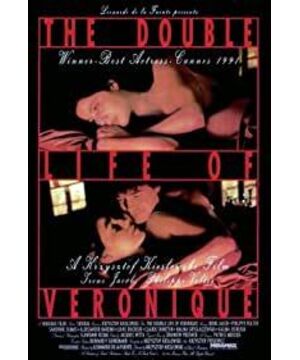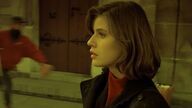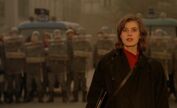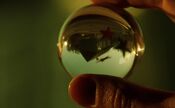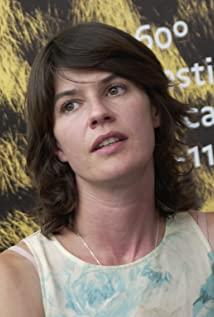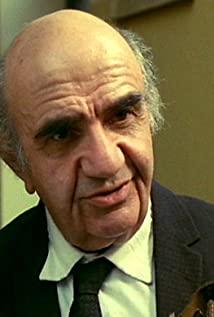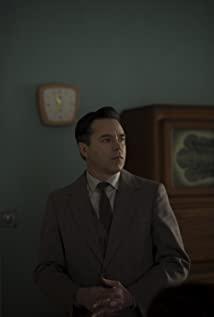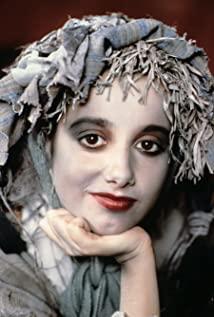don’t remember when, but I’m still young. A strange thought often arises in my mind. Why can a person only understand his own feelings and his own thoughts? Would I go completely into another person's heart and have the same mood as him? Is there another person, in a place I can't see, who is sad and happy because of my sadness and joy, but is silent and does not say a word? Or can my soul escape from my body and watch my own birth, pain and joy, and even see myself step by step closer to death without being able to do anything?
This kind of meditation often pops up on a lonely evening, occupying my ignorant and lonely mind, watching the clouds roll in the clouds, the leaves are flying, and I have passed through the green youth, and even the adult in the mediocre world, will occasionally be in Raised in the dead of night. Of course, at this time, I no longer have the curiosity of the 7-year-old Yang Yang in Yang Dechang's camera. I am just sad and lonely.
Later, I became fascinated by movies, and I always liked to identify with a certain character. I felt like I saw myself in him. Until the age of the eldest, I still couldn't learn the word "objectivity", and my feelings were always led by someone in the movie. Watching a favorite movie often tires me out.
I've always wondered if anyone else had the same idea. But never asked anyone.
2
In 1966, two identical girls were born in Poland and France, both named Veronica.
Veronica of Poland burned her hand in the flames. Veronica of France stretched out her hand to the beating flame, and at the moment she was about to touch it, she suddenly subconsciously retracted. This sudden movement made her feel confused, vaguely uneasy, and unaware of the expectation—— She didn't know that on the far side, the flames had burned her hand.
Veronica grew up with an angelic voice, and the one from Poland could only sing the beautiful melody in her heart, because her fragile heart could not bear such uninhibited enthusiasm. But she was never sad, because she felt that she was not alone, there was a voice in her heart to accompany her.
So she finally chose to fly, in the beautiful voice, and merged with the other self, and then, at the most brilliant moment, fell on the golden stage, in the orange light column, the soul of the winged butterfly that has been curled up finally spread its wings fly.
At that moment, Veronica in France was suddenly gripped by an unprecedented sadness. This happy girl felt lonely, as if her husband had gone to someone in her life. A kind of force suddenly pushed her to give up her favorite singing career and find love to relieve her sadness. However, in the arms of her lover, she still felt lonely.
Until she saw the photo, which she accidentally took while traveling in Poland, the other self looked at her quietly from the depths of the photo.
She finally understood the cause of her mourning, the cause of loneliness, and the cause of her search. She couldn't help herself and burst into tears, but it wasn't just because of sadness, but perhaps it was more comforting.
3
After watching this movie about looking for years, I was immersed in a certain emotion for a few days. When I calmed down and thought about it, I would always be in a trance for a moment, and I had the illusion that I didn’t know what was going on. If I didn't come across a favorite movie like I did before, I went online and checked the information to see if others felt the same way as I did. I don't even know what this movie is supposed to be about. What lingers in my heart is just the picture that seems to come from eternity, and the involuntary trembling of a certain string in the depths of my heart.
In the empty universe, the stars as many as the sands of the Ganges are like the eyes of each soul; the
fallen leaves are everywhere, the eyes are full of sparseness, and the beautiful girl who goes to the peak and death with the great joy of pilgrimage;
directly to the soul, like the light of heaven, brilliant and full of heart He sang beautifully;
his fingertips flicked over the photo, in the quiet touching and looking at each other, his heart trembled, tears welling up in his eyelashes, a faintly seen door, and a light in the door.
It is pain, it is sorrow;
it is joy, it is comfort.
There is a weakness, not because of loneliness and fear, but because of moving and possessing.
Is it the innocence of youth?
Is life fragile?
4
That mysterious light once again crossed from the same director's film. It was the old woman who twice appeared in the camera to pick up fallen leaves, the frosty woman at the Polish music school and the French train station.
Those wonderful pictures, perhaps only those eyes can capture the other side of the world that we have never known: the shimmering light that rotates, seeks, and projects from the deepest and farthest night sky, reaching the bodies of two ordinary girls. ; Churches and fields that are wide and narrow, and changeless on the window glass; the abrupt and exaggerated houses in the glass ball, time stops, and the moment is eternal. In the eyes of the camera, time and space disappear, life and death are opposed, a certain inner life is reborn, and somewhere out of sight, a voice mutes and dissipates in the gradually fading light.
And the eyes that pass through the coffin, turning off the light of the world little by little, become chaotic with the last handful of dirt thrown on the lid, and then, in another place, see another dimly melancholy self. The breath of the mysterious destiny is blowing, just like the lonely river piper in "The Ten Commandments", the sad flute lingers in all the movies and all the time...
5
Veronica from Poland, from the audition She came out of her classroom, the warm sun in the mid-winter morning quietly sprinkled on the street, and was screened into a grid by the columns on the square. She walked lightly between the columns, raised her angelic face, and faced the light. In the center of the square not far away, there is a crowd of people giving speeches.
Someone came towards her and knocked off her sheet music. For a moment, she froze there, then leaned over to pick up the sheet music and continued to move forward briskly.
The car started, and she was standing in the square, looking at the French girl who looked exactly like her in the window. Deep in the camera, behind her, is a row of riot police with shields.
This is a rare scene in the director's film that is directly related to political life. Of course this isn't a non-fiction film, and these shots must be intentional. But instead of thinking that this is a deliberate symbol or contrast, it is more precisely to use such a scene to show that the film has nothing to do with politics or even secular life. No matter what the background is, what the director sees, what he wants us to see, It's just life, the brilliance and misunderstanding of life at a certain moment, the eyes of the hole and the tears of joy.
This reminds me of another artist from Eastern Europe who is often misunderstood, Milan Kundera, who also uses the form of politics to deny politics. But his works lack the instantaneous shock and contemplative qualities of movies. Watching movies, I will not have the desire to think intellectually, but often fall into sudden reverie, wandering everywhere, never belonging, and what my soul faces, is only endless. Void and eternal silence. But it's not the dead heart-like silence of Eastern Zen, that kind of quietness, loneliness full of joy, moving and compassion.
In this film, his main propositions—existential and moral dilemmas—are not even present, but only images and meditations.
It's like looking at that glass of water flowing in the light; that leaf with impossibly clear veins; that puppet guarding the night with outstretched wings.
6
I once saw a photo, I don’t know if it was a cemetery in France or Poland. In the evening, red leaves were everywhere, like flames burning the earth. In the corner of the blue cemetery, Kieslowski in black stood leaning on the tomb. , his hair was a little white, he took off his glasses and looked at me deeply and melancholy.
This is my favorite photo.
To me, he was always like this, black, silent, on the edge of splendor and stillness, between day and night, between life and death.
When he was alive, he had so many reverie about death. Now that he is dead, when I get close to him again, I still have to face many questions about life and death, maybe more. Or he was just trying to tell us that it should be, and that there is no answer.
But I think I learned something through his films.
He seems to have such a pair of eyes, he can see the corners of another person's heart that he can't even notice, where the most mysterious and simple secret codes about life are hidden. A little light.
See us moved, see us rejoice.
See us cry, see us sad.
View more about The Double Life of Véronique reviews


